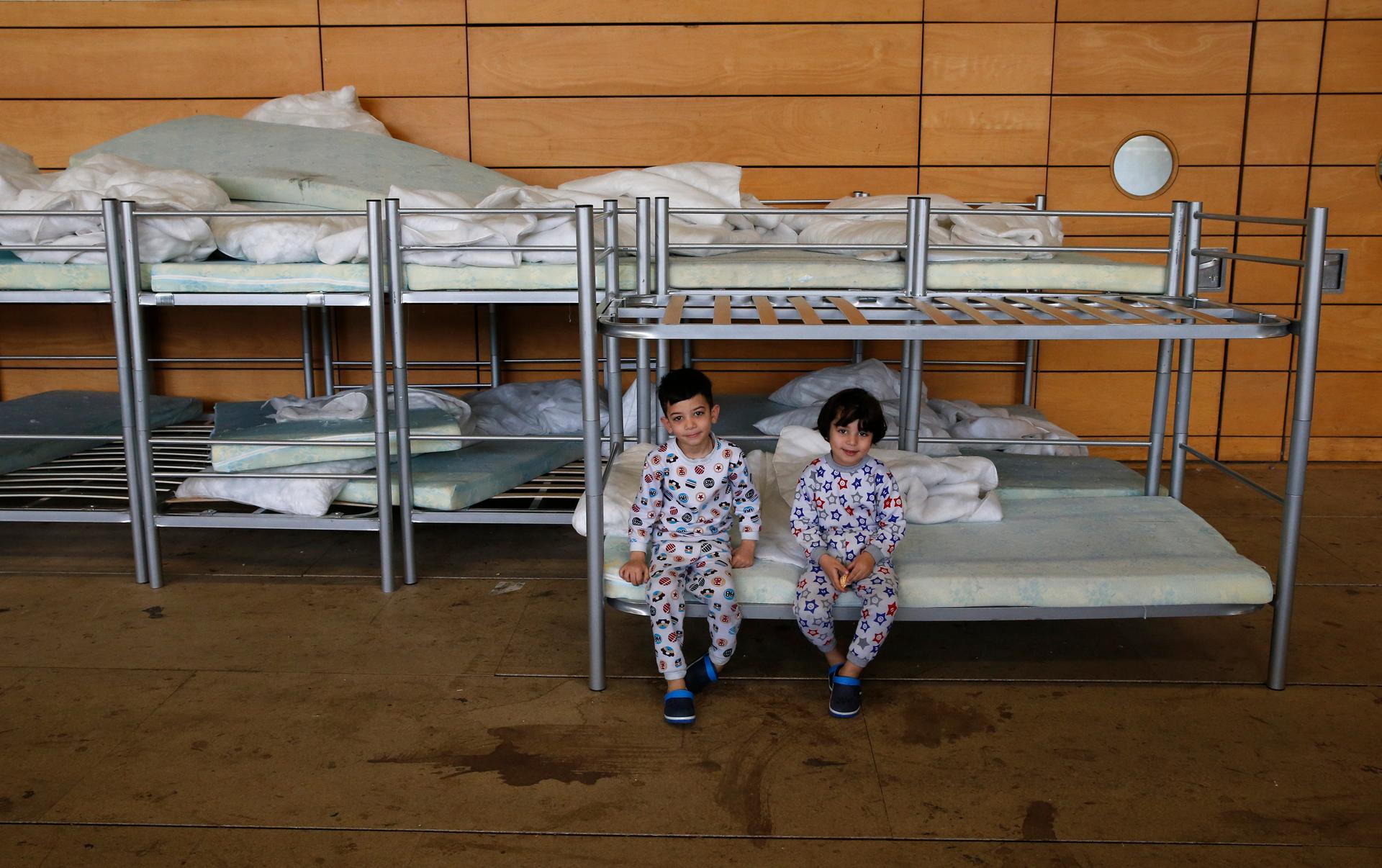Germany is trying to make itself less attractive to migrants
Migrant children from Iraq sit on beds inside the gymnasium of a high school that has been transformed into a refugee shelter in Berlin, Germany on February 2, 2016.
Berlin on Wednesday approved a package of measures aimed at making Germany less attractive to economic migrants, including reducing benefits.
The package, which is expected to see smooth passage through parliament, includes classifying Morocco, Tunisia and Algeria as "safe" origin countries — a category which means their citizens would not usually gain asylum.
Asylum applicants of "safe" origin countries, along with those whose first applications have been rejected, would be required to stay in an official accommodation.
Migrants who have lost their identity documents, as well as those deemed to pose a "danger to security and public order," would be subject to the same condition.
The aim of centralising the residence of such migrants is to facilitate their likely expulsion from Germany.
The asylum application process, as well as that of appeals, is to be shortened to within three weeks.
Other measures include reducing social handouts to asylum seekers, and restricting medical grounds preventing any expulsion of rejected asylum seekers to serious and terminal illnesses.
Chancellor Angela Merkel is battling to reduce the number of newcomers after 1.1 million asylum seekers arrived in Germany last year.
While she has refused to set a cap on the number of new arrivals, Merkel is looking to cooperation with Europe and Turkey to limit the influx, through, among other things, better policing of the EU's external borders.
alf-hmn/dlc/kjl
We want to hear your feedback so we can keep improving our website, theworld.org. Please fill out this quick survey and let us know your thoughts (your answers will be anonymous). Thanks for your time!
